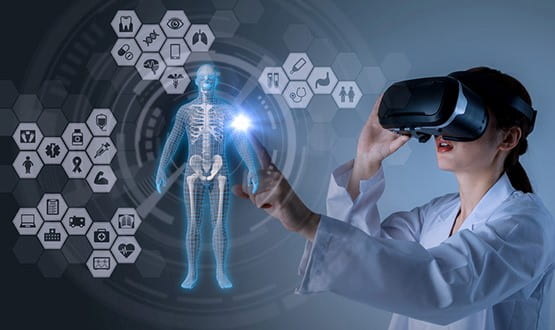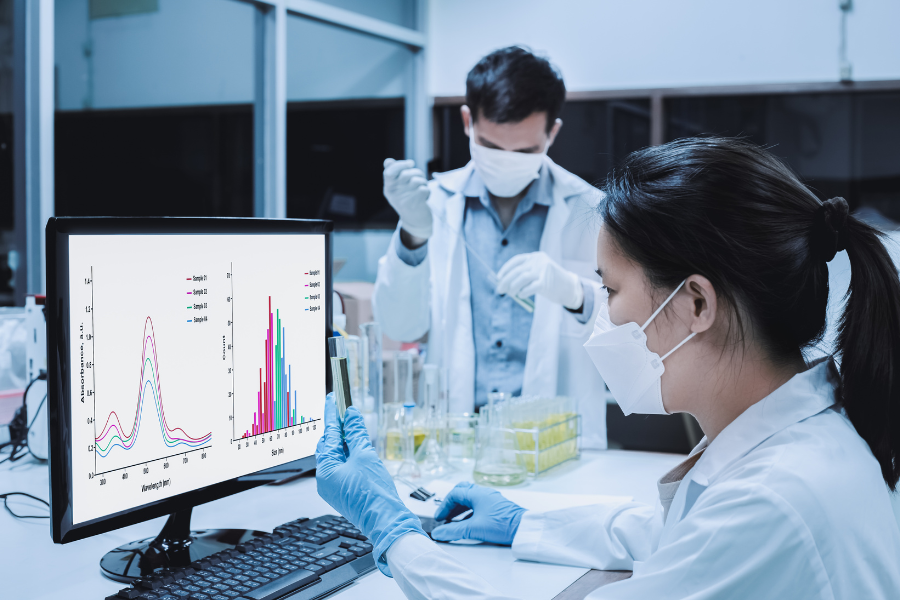
Healthcare technology has emerged as a transformative force, addressing some of the most pressing global health challenges. Technology is reshaping how medical services are delivered and consumed, from improving access to care and combating diseases to enabling early diagnosis and fostering preventive healthcare. This blog delves deep into the multifaceted role of healthcare technology in tackling global health challenges, highlighting its impact, innovations, and future potential.
The Role of Healthcare Technology in Global Health
Global health encompasses various issues, including infectious diseases, non-communicable diseases (NCDs), maternal and child health, mental health, and emergency preparedness. Technology offers solutions to these challenges by:
- Improving Access: Bridging the gap between healthcare providers and underserved populations.
- Enhancing Efficiency: Streamlining processes and reducing healthcare costs.
- Promoting Equity: Ensuring healthcare reaches marginalized communities.
- Enabling Data-Driven Decisions: Facilitating evidence-based policy-making through data analytics.
The application of technology extends across diagnosis, treatment, monitoring, and prevention, creating a comprehensive framework for addressing health challenges.
Revolutionizing Healthcare Delivery Through Telemedicine
1) Expanding Access to Care
Telemedicine has proven invaluable in reaching remote and underserved areas with limited healthcare infrastructure. With tools like video consultations, online patient portals, and remote monitoring devices, telemedicine bridges the gap between patients and healthcare providers.
- Real-Life Example: Programs like India’s eSanjeevani offer teleconsultations to millions in rural areas.
- Impact: Reduced travel costs, timely medical advice, and increased patient satisfaction.
2) Addressing Health Crises
During global health emergencies like the COVID-19 pandemic, telemedicine played a critical role by:
- Reducing the burden on hospitals.
- Ensuring continuity of care for chronic disease patients.
- Enabling mental health support.
3) Future Prospects
Advancements in telemedicine, including AI-driven diagnostics and multilingual support, promise to further democratize access to healthcare.
Artificial Intelligence (AI) and Machine Learning in Healthcare
AI and machine learning are revolutionizing healthcare by automating complex tasks, enhancing diagnostic accuracy, and enabling predictive analytics.
1) Enhancing Diagnostics
AI-powered algorithms analyze medical images, such as X-rays, MRIs, and CT scans, to precisely detect diseases.
- Example: Google’s AI system for retinal scans detects diabetic retinopathy at an accuracy level comparable to top ophthalmologists.
2) Personalized Medicine
AI tailors treatments to individual patients by analyzing genetic data, lifestyle factors, and medical history.
- Example: Cancer treatments using AI to identify the most effective therapies based on tumor profiles.
3) Predictive Analytics
AI predicts disease outbreaks, patient deterioration, and hospital readmissions by analyzing real-time data.
- Example: IBM’s Watson Health predicts potential epidemics by analyzing climate and population data.
Wearable Technology and Remote Monitoring
Wearable devices like fitness trackers, smartwatches, and medical-grade monitors empower individuals to control their health.
1) Chronic Disease Management
Wearables monitor vital signs such as heart rate, blood pressure, and glucose levels, enabling timely interventions for diabetes and hypertension.
2) Maternal and Child Health
Devices like portable ultrasounds and fetal monitors improve prenatal care, especially in low-resource settings.
3) Empowering Preventive Care
By providing real-time data on physical activity, sleep patterns, and stress levels, wearables encourage healthier lifestyles and early detection of health issues.
Electronic Health Records (EHRs) and Interoperability
Digital health records have transformed how medical data is stored, accessed, and shared.
1) Improving Efficiency
EHRs reduce paperwork, enhance communication between providers, and minimize errors.
2) Enabling Continuity of Care
Interoperable EHR systems ensure patients’ medical histories follow them across healthcare providers, improving care coordination.
3) Supporting Public Health Efforts
Aggregated data from EHRs aids in disease surveillance, policy-making, and resource allocation.
- Example: EHRs played a pivotal role in tracking COVID-19 vaccination efforts globally.
Addressing Global Health Inequalities with Technology
1) Mobile Health (mHealth)
Mobile technology bridges healthcare gaps in low- and middle-income countries (LMICs).
- Impact: Health apps provide maternal health, nutrition, and disease prevention information.
- Example: Africa’s mHealth initiatives have improved HIV/AIDS awareness and treatment adherence.
2) Affordable Diagnostics
Innovations like portable diagnostic kits and low-cost imaging devices make advanced healthcare accessible to marginalized communities.
3) Digital Inclusion
Programs promoting digital literacy ensure that vulnerable populations benefit from healthcare technology.
Combating Infectious Diseases Through Technology
Infectious diseases like malaria, tuberculosis, and HIV/AIDS remain significant global health challenges. Technology is aiding in their prevention, diagnosis, and treatment.
1) Disease Surveillance
Digital platforms and AI algorithms track disease outbreaks and identify hotspots for targeted interventions.
2) Vaccine Development
Advancements in biotechnology and AI accelerated COVID-19 vaccine development, setting a precedent for future efforts.
3) Mobile Diagnostics
Portable diagnostic tools enable rapid testing for diseases like malaria and tuberculosis in remote areas.
Tackling Non-Communicable Diseases (NCDs)
NCDs, including cardiovascular diseases, diabetes, and cancer, are the leading causes of death globally. Technology offers solutions to reduce their burden:
- Wearables: Monitoring heart health and blood glucose levels.
- Telehealth: Ensuring regular consultations for chronic disease patients.
- AI: Identifying high-risk individuals through predictive modeling.
Enhancing Mental Health Care
Mental health is a global crisis exacerbated by stigma, lack of resources, and access barriers. Technology is breaking down these barriers by:
- Online Counseling Platforms: Providing discreet and affordable access to mental health professionals.
- AI Chatbots: Offering 24/7 support for stress, anxiety, and depression.
- Apps: Promoting mindfulness and emotional well-being.
Preparing for Global Health Emergencies
1) Pandemic Preparedness
Technology plays a critical role in managing pandemics through:
- Real-time data analysis for tracking infections.
- Telemedicine to reduce healthcare facility overload.
- Vaccine distribution logistics.
2) Disaster Response
Drones, AI, and mobile technology aid in disaster response by delivering medical supplies, locating survivors, and coordinating relief efforts.
Challenges in Implementing Healthcare Technology
Despite its potential, healthcare technology faces challenges:
- Digital Divide: Limited access to technology in rural and low-income areas.
- Data Privacy: Ensuring the security of sensitive patient information.
- Cost: High initial investment in infrastructure and training.
- Resistance to Change: Overcoming skepticism among healthcare providers and patients.
The Future of Healthcare Technology
1) Precision Medicine
Advances in genomics and AI will enable highly personalized treatments tailored to individual patients.
2) Robotics and Automation
Robotics will play a growing role in surgeries, rehabilitation, and elderly care.
3) Global Collaboration
Technology will facilitate greater collaboration between countries, healthcare organizations, and researchers to tackle global health challenges collectively.
Healthcare technology is at the forefront of addressing global health challenges, offering innovative solutions that enhance access, efficiency, and equity. Technology is transforming how healthcare is delivered worldwide, from telemedicine and AI-driven diagnostics to wearable devices and digital health records. While challenges remain, the ongoing evolution of healthcare technology holds the promise of a healthier, more equitable future for all.


